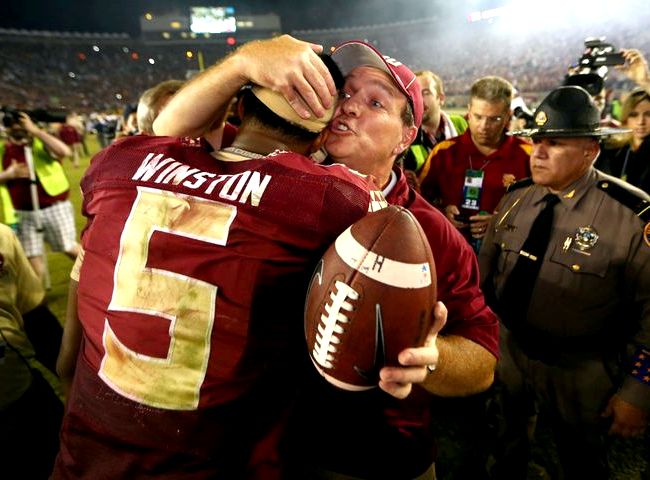
By George C. Edwards III November 2, 2012
1. The framers produced the electoral college to safeguard small states.
The delegates towards the 1787 Constitutional Convention had a number of causes of buying the electoral college format, but protecting smaller sized states wasn't included in this. Some delegates feared direct democracy, however that was just one element in the controversy.
Remember exactly what the country appeared as if in 1787: The key division was between claims that trusted slavery and individuals that didn’t, not between small and big states. An immediate election for president didn't sit well with many delegates in the slave states, which in fact had large populations but far less qualified voters. They gravitated toward the electoral college like a compromise since it took it's origin from population. The convention had decided to count each slave as three-fifths of the person with regards to calculating each state’s allotment of seats in Congress. For Virginia, which in fact had the largest population one of the original 13 states, that meant more clout in selecting obama.
The electoral college distorts the political process by supplying an enormous incentive to go to competitive states, especially large ones with hefty figures of electoral votes. That’s why Obama and Romney have spent a lot time this season in states like Ohio and Florida. Within the 2008 general election, Obama and John McCain personally campaigned in just five from the 29 tiniest states.
The framers protected the interests of smaller sized states by allowing the Senate, which provides each condition two votes no matter population. There's no requirement for additional protection. Will we want a presidency attentive to parochial interests inside a system already vulnerable to gridlock? The framers didn’t.
2. The electoral college helps to ensure that the champion has broad support.
Supporters reason that the electoral college format prevents candidates from targeting specific groups and regions, rather forcing these to seek votes across the nation. But that’s not the actual way it has labored in recent presidential contests. Generally, Republicans have attempted to stitch together an electoral college majority in the South, Southwest and Rocky Mountain states, while Democrats have trusted the big states on coasts and also the Midwest, departing certain swing states (hello, Florida!) as perennial battlegrounds.
Any system of electing obama requires some form of broad support, however the electoral college does nothing to advertise that goal. In 2000, George W. Plant lost the most popular election to Al Gore but won within the electoral college. His victory came largely from his support among white-colored men. He didn't win majorities among women, blacks, Latinos, urbanites, the youthful, that old or individuals with less-than-average earnings. In a nutshell, Plant claimed the White-colored House using the backing of 1 dominant group, avoid broad support.
3. The electoral college preserves stability within our political system by discouraging organizations.
The electoral college offers no guarantee of these “stability” — actually, history suggests otherwise. The Republican Party was created like a third (or perhaps 4th) party, also it rapidly established itself like a major pressure within the 1856 and 1860 elections. In 1912, Teddy Roosevelt ran like a third-party nominee, despite the fact that he didn’t win, he easily bested his former party’s candidate, the Republican incumbent, William Howard Taft.
The electoral college system provides a third-party candidate more possibilities to produce mischief than the usual direct election does. Consider what might happen inside a neck-and-neck contest: If your third-party nominee won enough states to avoid either major-party candidate from winning the 270 electoral votes required for a big part, home of Representatives would decide the end result. Each condition delegation might have one election Vermont and Wyoming would count just like Texas and New You are able to. That’s virtually no recipe for stability.
Additionally, underneath the electoral college, a 3rd party can tip the total amount inside a carefully contested condition. In 2000, Rob Nader siphoned votes from Gore in Florida. Had Nader not run, Gore might have won the election.
Direct elections, especially individuals with no runoff, prevent such problems. Arriving third or 4th would obtain a party no leverage in picking a obama.
4. In direct elections, candidates would campaign only in large metropolitan areas.
Under any system, candidates attempt to spend time in places where they are able to achieve probably the most voters. However in an immediate election, with each and every election counting equally, candidates might have a motivation to attract voters everywhere, not only individuals in swing states. Since the cost of advertising is principally the purpose of market size, it doesn't are more expensive to achieve 10,000 voters in Wyoming of computer gives achieve 10,000 voters in New You are able to or La.
It’s the electoral college that shortchanges voters. Since it is not sensible for candidates to invest money or time in states they either cannot win or will definitely win, thriving metropolitan areas for example Atlanta, Bay Area and El Paso get no love from White-colored House hopefuls.
Making every election count in each and every condition might have other benefits. It might stimulate party-building efforts while increasing turnout. People are more inclined to cast a ballot when they think their election matters.
5. Electors must election for that candidate who wins their condition.
Theoretically, this is correct. Used, however, electors may election for whoever they please, as well as on rare occasions, they are doing. Inside a tight election, such behavior might deny either candidate most the electoral election and toss the election into home of Representatives.
For generations, pollsters have discovered that the obvious most of Americans support direct election from the president. The more we hang on to the electoral college, the more we’ll have presidential campaigns that leave large figures of voters feeling overlooked, plus a system that distorts the public’s preferences.
George C. Edwards III may be the Winant professor of yankee government at Oxford College in great britan, and also the college distinguished professor of political science at Texas AM.
Could Mitt Romney win the most popular election on Tuesday while President Barack Obama captures most the 538 electoral votes along with a return visit to the White-colored House? Recent polling results have elevated exactly that possibility. reminding Americans once more they cast ballots, however they don’t elect presidents directly. That job falls towards the electoral college, a method that needs candidates to win states, not only votes. Let’s check out the primary justifications for maintaining the electoral college and find out the way they endure scrutiny.





















